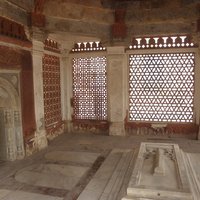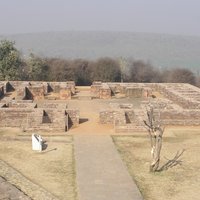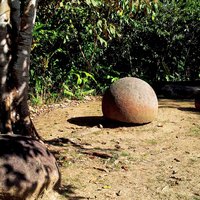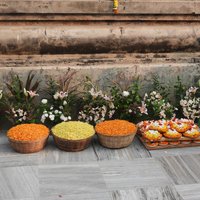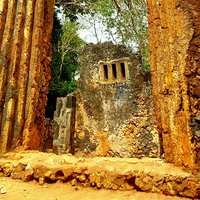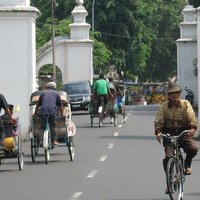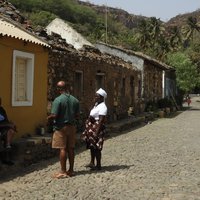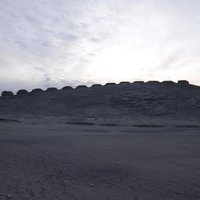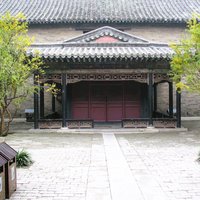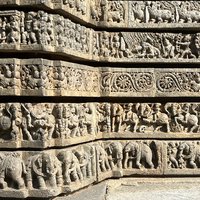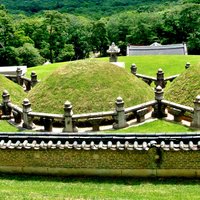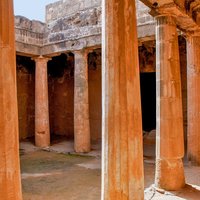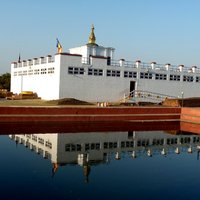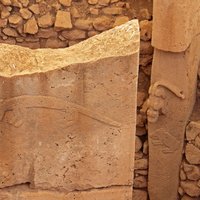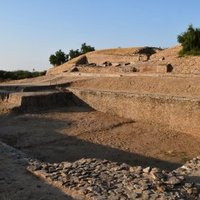Connected Sites
-
The "non rusting" Iron Pillar. Although often called an "Ashoka Pillar" it is not. It bears an inscription which states that it was erected as a flagstaff in honour of the Hindu god, Vishnu, and in the memory of the Gupta King Chandragupta II (375-413).
-
Quote from ICOMOS evaluation "Asoka, ....... also had a stone column more than 12 m high erected with his edicts carved on it. "
See www.tourtravelworld.com
-
On top of the mound, stone pillars are set as markers (AB ev)
-
"One of the most famous of Ashoka's many pillars (on which he had engraved his edicts and his understanding of religious doctrine) stands at the southeast corner of the temple." (Britannica)
-
"Stone "pillar tombs" are a distinctive type of Swahili Coast architecture found at Gedi as well." (wiki)
-
Tugu Pal Putih
-
16th century marble pillar on Pillory Square
-
The Temple of the Pillars has pillared galleries. The pillars are found in rows of 4 to 16 and were decorated and contained slits forming a double-step motif. They supported a partial roof made from perishable local materials, such as cane, covered in mud. Archaeoastronomical analysis supports the suggestion that the pillars were designed for the projection of spectacular lights and shadows during the minutes following sunrise, orchestrated to cover the whole year. (Nomination Text, p. 41, 44, 51-52)
-
The Cemetery contains more than 100,000 tombs of the descendants of Confucius, bearing stelae, stone figures, celestial pillars, and other funerary furniture. There are over sixty structures (gates, sacrifice halls, and stele pavilions) for ceremonial and sacrificial use." - AB Document
-
"Outside the walls before the gate stands a tall pillar, which once had a Garuda statue on top, now missing." (wiki Keshava temple)
See en.wikipedia.org
-
All Joseon Dynasty Tombs contain these types of pillars - Mangjuseokm, this is a pair of stone pillars erected on both sides of the mound. - Hongsalmun, this is the gate with two red cylindrical pillars. -wiki
-
St Paul's Pillar
-
Referred to in ICOMOS evaluation as "The sandstone Ashoka pillar with its sanskrit inscriptions. That of Ashoka in Brahmi script and the later one of Ripu Malla in Devanagara script"
-
Distinctive T-shaped pillars (AB ev)
-
The "in situ preserved stone elements, consisting of a series of arrangement of square, bi-concave and bi-convex pillar elements, fastened to each other through a mortice and tenon arrangement, have helped in the understanding of architectural edifices and their basic elements." "The production of limestone pillar elements is unmatched among the other contemporary settlements." "The pillar elements were also exported to other Harappan cities like Mohenjo-daro and Harappa, from where evidences clearly indicate the interregional trade and the demand for such items of trade, most probably for elite use." (Nomination text, p. 167, 170-171, 353)

